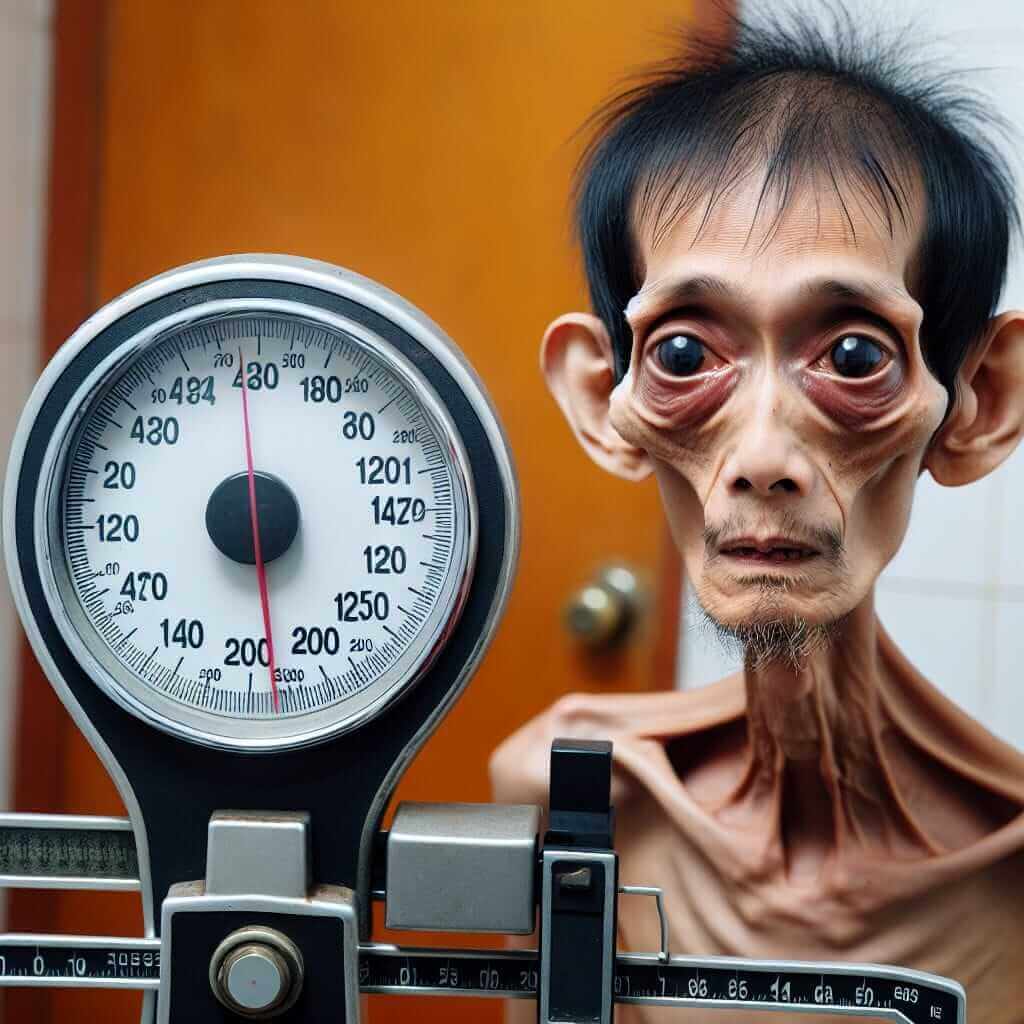Mastering idiomatic expressions like “skin and bones” can be a valuable asset for anyone preparing for the IELTS exam. This phrase is often used to describe someone who is extremely thin, which can come in handy in various parts of the IELTS test, particularly in Writing and Speaking sections.
Understanding the Phrase “Skin and Bones”
Skin and bones
- Phonetics: /skɪn ənd boʊnz/
- Part of Speech: Idiom
- Definition: To describe someone who is extremely thin, almost emaciated.
- Synonyms: Emaciated, skeletal, extremely thin
- Antonyms: Well-built, plump, overweight
Example Sentence:
“After months of illness, he was nothing but skin and bones.”
How “Skin and Bones” Appears in IELTS Exams
The phrase “skin and bones” is more likely to appear in the context of describing physical appearances or health conditions, which are common topics in the IELTS Speaking and Writing sections.
In Writing Tasks
You may be required to describe a person or discuss health-related issues, making this phrase highly applicable.
Example Task 1 Prompt:
Describe your best friend.
Example Response:
“My best friend, unfortunately, suffered from a severe illness last year, leaving him skin and bones. However, he has made a splendid recovery since then.”
In Speaking Tasks
Questions about health, lifestyle, or even describing people are frequent, providing a perfect opportunity to use this idiom.
Example Speaking Part 2 Prompt:
Describe a person you know who has lost a lot of weight.
Example Response:
“There’s an interesting story about my uncle. Due to his strict diet and exercise regime, he lost so much weight that he looked skin and bones. It was astonishing to see his transformation.”
Detailed Analysis and Examples
Example 1: Speaking Task Part 2
Prompt: Describe someone you know who is very thin.
Response:
“I’d like to talk about my neighbor. He has been skin and bones since I can remember. His condition is quite concerning to everyone in our community. Despite various medical checks, doctors have been unable to determine the cause of his extreme thinness.”
Analysis:
- “skin and bones”: This idiom is used here to vividly describe someone’s physical appearance and adds depth to the speaker’s description.
- Structure: Introducing the subject (neighbor), describing the condition (skin and bones), expressing concern, and the unknown cause (despite various medical checks).
Example 2: Writing Task 1
Prompt: Write a letter to a friend about a significant health change you’ve noticed in someone you know.
Response:
“Dear John,
I wanted to share some worrying news about Mary. Lately, she has become skin and bones. It seems that stress from her job has taken a serious toll on her health. I hope you can visit her soon and perhaps offer some much-needed support.”
Analysis:
- Structure: Opening (Dear John), sharing the news (worrying news about Mary), describing the health change (skin and bones), followed by concern and a call to action.
Example 3: Writing Task 2
Prompt: Discuss the effects of a poor diet on human health.
Response:
“A poor diet can have numerous negative effects on human health. One stark example is how individuals can become skin and bones due to nutritional deficiencies. An inadequate intake of essential nutrients leads to extreme weight loss, compromising one’s immune system and overall well-being.”
Analysis:
- Structure: Introduction to the topic (poor diet effects), main point (skin and bones due to nutritional deficiencies), explanation (inadequate intake of nutrients), and consequence (compromised immune system and well-being).

Related Idioms and Expressions
-
“Thin as a rail”
- Definition: Extremely thin.
- Example: “After the surgery, she became as thin as a rail.”
-
“Wasting away”
- Definition: Gradually becoming thinner and weaker.
- Example: “Due to the chronic illness, he was wasting away.”
-
“Gaunt”
- Definition: Very thin, especially because of illness or hunger.
- Example: “His gaunt appearance was attributed to months of famine.”
-
“Emaciated”
- Definition: Abnormally thin or weak, especially because of illness or a lack of food.
- Example: “The emaciated refugees arrived at the camp in a pitiable condition.”
-
“Underweight”
- Definition: Weighing less than the standard for one’s height.
- Example: “He was deemed underweight and advised to gain a few pounds.”
Conclusion
The idiom “skin and bones” is a vivid and descriptive way to talk about extreme thinness, often due to health issues. It is beneficial for IELTS candidates to integrate such idiomatic expressions in both speaking and writing sections to enrich their language and appeal to examiners’ appreciation of nuanced vocabulary. Familiarizing oneself with related expressions can further enhance one’s descriptive capabilities and improve overall performance in the exam.
For more insights into improving your vocabulary and practice for the IELTS exam, check out our articles on the importance of physical exercise for IELTS speaking and enhancing IELTS practice through various topics like fractures and rheumatology. Happy learning!